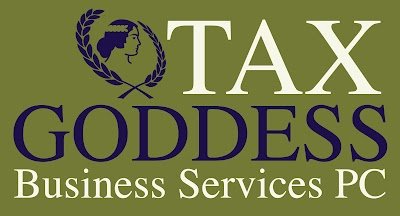
Are Hiring Bonuses Taxed?
In the United States, hiring bonuses are generally taxable as wages. This means that the amount of the bonus is subject to federal income tax, as well as any applicable state and local taxes. The employer is required to withhold taxes from the bonus at the time it is paid, just like with regular wages.
A hiring bonus’s specific tax rate will be determined by the employee’s tax bracket and the bonus’s amount. For instance, if an employee receives a $1,000 hiring bonus and is in the 22% tax bracket, they will owe $220 in federal income tax on the bonus.
It’s important to note that the tax treatment of a hiring bonus may be different if it is paid as part of a severance package or as a deferred compensation payment. In these cases, the bonus may be subject to different tax rules, such as the rules for supplemental wages or deferred compensation plans. If you have any concerns regarding the tax treatment of a specific type of payment, it is always a good idea to speak with a tax expert or consult the IRS regulations.
Are bonuses taxed at 40 %?
No, the tax rate on bonuses is not a flat 40%. The tax rate on bonuses depends on the amount of the bonus and the employee’s tax bracket.
In the United States, the tax rate on bonuses is generally the same as the tax rate on regular wages. This means that the amount of the bonus is subject to federal income tax, as well as any applicable state and local taxes.
The specific tax rate that applies to a bonus will depend on the employee’s tax bracket and the amount of the bonus. For example, if an employee is in the 22% tax bracket and receives a $1,000 bonus, the employee will owe $220 in federal income tax on the bonus.
However, there are special rules that apply to bonuses that are over $1 million. If the total amount of bonuses received by an employee in a year is over $1 million, the first $1 million is taxed at the same rate as regular wages, but any amount over $1 million is taxed at a higher rate of 37%. The employer must use the percentage method to calculate the tax on bonuses over $1 million.
It’s important to note that these tax rules apply to bonuses paid in the United States. Different countries may have different tax rules for bonuses, so it’s always a good idea to consult with a tax professional or refer to local guidelines if you have questions about the tax treatment of a bonus in a particular country.
What bonuses are not taxed?
In the United States, non-financial bonuses, such as the ability to work from home or work flexible hours, are generally not taxable. However, it’s important to note that not all non-financial bonuses are tax-free. Some non-financial bonuses, such as personal use of a company car, may be considered taxable fringe benefits.
If you have any concerns about the tax treatment of a specific kind of bonus or fringe benefit, it’s always a good idea to speak with a tax expert or consult IRS regulations.
It’s also important to note that while non-financial bonuses are generally not taxable, other types of bonuses, such as cash bonuses or bonuses paid in the form of property, are generally taxable as wages. The tax treatment of a bonus will depend on the specific circumstances of the payment and the applicable tax laws.
Final Thoughts
In summary, hiring bonuses and other types of bonuses are generally taxable as wages in the United States. The specific tax rate that applies to a bonus will depend on the employee’s tax bracket and the amount of the bonus. There are special rules that apply to bonuses that are over $1 million, which are taxed at a higher rate of 37%.
Non-financial bonuses, such as the ability to work from home or work flexible hours, are generally not taxable, but some non-financial bonuses may be considered taxable fringe benefits. The tax treatment of bonuses may vary by country, and it’s always a good idea to consult with a tax professional or refer to local guidelines if you have questions about the tax treatment of a bonus in a particular country.
Top Tax Professionals in the USA

 Type - accounting | finance | establishment
Type - accounting | finance | establishment  Name - Hood & Associates CPAs, PC | Tax, Accounting & Financial Services in Tulsa
Name - Hood & Associates CPAs, PC | Tax, Accounting & Financial Services in Tulsa  Address - 5350 E 46th St Suite 130, Tulsa, OK 74135, USA
Address - 5350 E 46th St Suite 130, Tulsa, OK 74135, USA  Rating - 4.7
Rating - 4.7  Call - +1 918-747-7000
Call - +1 918-747-7000  Website - http://www.hoodcpas.com/
Website - http://www.hoodcpas.com/ 
 Type - accounting | finance | establishment
Type - accounting | finance | establishment  Name - Polston Tax Resolution & Accounting
Name - Polston Tax Resolution & Accounting  Address - 2021 S Lewis Ave #350, Tulsa, OK 74104, USA
Address - 2021 S Lewis Ave #350, Tulsa, OK 74104, USA  Rating - 3.6
Rating - 3.6  Call - +1 918-551-7060
Call - +1 918-551-7060 
 Type - accounting | finance | establishment
Type - accounting | finance | establishment  Name - Judy Roberts Tax Services Inc
Name - Judy Roberts Tax Services Inc  Address - 329 Oaks Trail #223, Garland, TX 75043, USA
Address - 329 Oaks Trail #223, Garland, TX 75043, USA  Rating - 5
Rating - 5  Call - +1 972-907-8201
Call - +1 972-907-8201 
 Type - accounting | finance | establishment
Type - accounting | finance | establishment  Name - Tax Goddess - CPA Firm in Scottsdale that serves the whole United States of America
Name - Tax Goddess - CPA Firm in Scottsdale that serves the whole United States of America  Address - 7272 E Indian School Rd #540, Scottsdale, AZ 85251, USA
Address - 7272 E Indian School Rd #540, Scottsdale, AZ 85251, USA  Rating - 4.5
Rating - 4.5  Call - +1 602-357-3275
Call - +1 602-357-3275  Website - http://www.taxgoddess.com/
Website - http://www.taxgoddess.com/ 
 Type - accounting | finance | establishment
Type - accounting | finance | establishment  Name - Robert Hall & Associates (Accountants & Tax Preparers)
Name - Robert Hall & Associates (Accountants & Tax Preparers)  Address - 300 W Glenoaks Blvd #200, Glendale, CA 91202, USA
Address - 300 W Glenoaks Blvd #200, Glendale, CA 91202, USA  Rating - 4.8
Rating - 4.8  Call - +1 818-242-4888
Call - +1 818-242-4888  Website - https://www.roberthalltaxes.com/
Website - https://www.roberthalltaxes.com/ 
 Type - accounting | finance | establishment
Type - accounting | finance | establishment  Name - Market Tax Services
Name - Market Tax Services  Address - 110 E Waterman St Suite 100, Wichita, KS 67202, USA
Address - 110 E Waterman St Suite 100, Wichita, KS 67202, USA  Rating - 4.7
Rating - 4.7  Call - +1 316-803-1040
Call - +1 316-803-1040  Website - http://www.markettaxservices.com/
Website - http://www.markettaxservices.com/ 
 Type - accounting | finance | establishment
Type - accounting | finance | establishment  Name - J & P Professional Services
Name - J & P Professional Services  Address - 5459 S Mingo Rd suite j, Tulsa, OK 74146, USA
Address - 5459 S Mingo Rd suite j, Tulsa, OK 74146, USA  Rating - 4.8
Rating - 4.8  Call - +1 918-665-2136
Call - +1 918-665-2136 
 Type - accounting | finance | establishment
Type - accounting | finance | establishment  Name - OG Tax and Accounting Group
Name - OG Tax and Accounting Group  Address - 164 20th St Suite 2E, Brooklyn, NY 11232, USA
Address - 164 20th St Suite 2E, Brooklyn, NY 11232, USA  Rating - 4.4
Rating - 4.4  Call - +1 718-788-1327
Call - +1 718-788-1327  Website - https://www.ogcpafirm.com/
Website - https://www.ogcpafirm.com/  Type - accounting | finance | establishment
Type - accounting | finance | establishment  Name - Gardner's Tax Services
Name - Gardner's Tax Services  Address - 5618 S Mingo Rd, Tulsa, OK 74146, USA
Address - 5618 S Mingo Rd, Tulsa, OK 74146, USA  Rating - 4.3
Rating - 4.3  Call - +1 918-250-7381
Call - +1 918-250-7381  Website - http://gardnertaxservice.com/
Website - http://gardnertaxservice.com/ 
 Type - accounting | finance | establishment
Type - accounting | finance | establishment  Name - O'Neal's Tax Service
Name - O'Neal's Tax Service  Address - 7509 E Pine St, Tulsa, OK 74115, USA
Address - 7509 E Pine St, Tulsa, OK 74115, USA  Rating - 5
Rating - 5  Call - +1 918-835-2383
Call - +1 918-835-2383  Website - http://www.onealstaxservice.com/
Website - http://www.onealstaxservice.com/ 